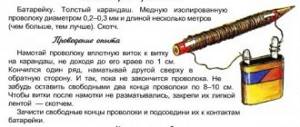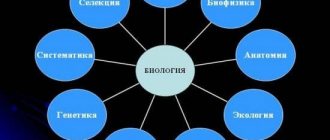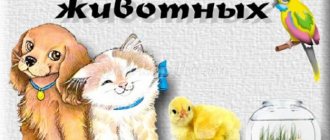Environmental project “Nature in our hands”
Sedova K.N. Environmental project “Nature in our hands” // Sovushka. 2020. N1 (15). URL: https://kssovushka.ru/zhurnal/15/ (access date: 10.10.2020).
Order No. 246709
The time has come when man begins to remember that he is part of nature. The time has come when people begin to understand the laws of nature. If we all learned to live in consultation and harmony with ourselves, nature, the world around us, how the world would change in one moment.
We are the masters of our nature, and it is the storehouse of the sun with all the treasures of life. Fish need water, birds need air, animals need forests, steppes, mountains, and humans need nature. And protecting it is our main goal. Let's take care of her!
The formation of an environmental culture should begin in kindergarten. Since the ecological self-awareness of children is not sufficiently formed, based on this, it is possible to formulate the goal of the project and its objectives.
The goal of the environmental project is to create conditions for developing a sense of involvement in solving environmental problems, through the inclusion of students in various activities to study and improve the environmental situation.
Tasks:
Educational:
- Enrich children's knowledge about the nature of planet Earth;
- Talk about the relationship and interaction of all its objects;
- To consolidate knowledge about the rules of behavior in nature;
Developmental:
- Develop curiosity and observation;
- Form cognitive activity;
- Develop skills and abilities to properly interact with nature;
- Develop the need and ability to conduct experiments and experiments independently;
- To form a spiritual and moral attitude and a sense of belonging to nature.
Educational:
- Foster an environmentally conscious attitude towards nature;
- Cultivate a caring attitude.
Project implementation period: September-May
Project participants : children from 6 to 7 years old, parents, teachers of group No. 5.
Expected results:
- Increasing the level of knowledge on ecology in children.
- Creation of an environmentally friendly environment on the territory of GBOU Secondary School 1101 d\o No. 2.
- Increase the level of observation in children.
- Develop creative abilities.
- Improve the level of knowledge.
Forms of work:
- Observations and ecological excursions around the territory of the kindergarten.
- Cognitive reading of literary works.
- Making a collective collage.
- Making wall newspapers for the exhibition.
- Productive activity.
- Release of an environmental newspaper.
- Ecological games.
- Listening to music.
- Introduction to environmental signs.
- Subbotniks with parents.
Plan - a map of actions for implementing a project for children 6-7 years old.
September October
Goal: developing ideas about the cleanliness of the environment as an important component of human health and all life on earth.
| № p/p | Collaborative activities between teachers and children | Interaction with family |
| 1 | Conversation about professions - forester, gardener. Conversation “What is nature?”, “Autumn flowers”, “Living, inanimate nature and the man-made world”, “The world of stones”, “How plants prepare for winter”. Solving problematic situations, what needs to be done to reduce waste on the site. Joint labor activity on the site | Collecting leaves and drying them. Collection of cones and acorns. |
| 2 | Getting to know the types of seeds and collecting them. | exhibition “Nature of the Native Land”. |
| 3 | Conversation: “Why do trees shed their leaves?”, “Coniferous trees of our forests.” excursion around the territory of the kindergarten. | Photo session “Autumn beauty” Making wall newspapers. |
| 4 | Drawing a site plan. Acquaintance with folk wisdom about caring for nature. | Labor landing (subbotnik for children) cleaning the territory |
November
Goal: development of observation, a sense of empathy and involvement in the fate of birds in winter, love for the nature of the native land.
| № p/p | Collaborative activities between teachers and children | Interaction with family |
| 1 | View presentation: “Birds of our region” Drawing: “Bullfinch” | Feeder competition. |
| 2 | Collaborative collage: “Birds of our region” Conversation: “Why do birds fly away?”, “Feed the birds in winter.” | Making reminders and leaflets: “Feed the birds in winter” and distributing them to the older group |
| 3 | Ecological fun Campaign: “Let’s feed the birds” Quiz: “Who knows more about birds ?” Card file of musical works about birds : play "Ballet of the Unhatched Chicks" M. Mussorgsky; “Dance of the Little Swans” from the ballet by P. Tchaikovsky; G. Gladkov “Bird Market”; R. Schumann “The Cuckoo is Invisible.” | Making a wall newspaper – photo report “bird house” |
| 4 | View and study family recipes "Nature's Green Pharmacy" Conversation: “Houseplants are companions of our lives” | Family recipe book “Green Pharmacy of Nature”. |
| 5 | Learning poems about birds Conversation: “Why do animals molt?”, “Be nature’s friend,” “How animals prepare for winter.” | |
| 6 | View and study individual projects in a group | Work on individual family projects by topic |
December - January
Goal: teaching green friends to be careful.
| № p/p | Collaborative activities between teachers and children | Interaction with family |
| 1 | View pictures of trees View illustrations “Winter Landscapes” | Release of leaflets “Buy an artificial Christmas tree, save the forest!” |
| 2 | Ecological games Making spruce from plasticine | Making Christmas tree toys |
| 3 | Decorating a spruce tree with toys | photo session “Winter fun” making wall newspapers |
| 4 | Making an invitation poster for the New Year. | “How we saved the spruce” + children’s drawings, exhibition in a group. |
| 5 | View and study individual projects in a group | Work on individual family projects by topic |
| 6 | Decoration blanks for the Ice Lanterns site | |
| 7 | Experience – experiment “Growing crystals” (from saline solution) | |
| 8 | Planting bulbous plants for the holiday of March 8 (experience; observation; care) |
February March
Goal: to develop an idea of water as the source of life for all life on planet Earth based on research activities.
| № p/p | Collaborative activities between teachers and children | Interaction with family |
| 1 | Watching documentaries about water. Compiling a catalog of games about water. Conversation: “Clean air and water are our best friends,” “What grows in water.” | “Healthy and unhealthy food” Cooking healthy meals with your family on the weekend. Photo report. Making wall newspapers. |
| 2 | Bookmark for books “Remember the water” | Drawings on the theme: “Take care of nature” |
| 3 | Research activity “Water in nature”. Educational games with a drop of water. | |
| 4 | Experience - experimentation “How plants drink water” | |
| 5 | Protection of posters “Water is life” | Release of leaflets “Save water” |
| 6 | View and study individual projects in a group | Work on individual family projects by topic |
| 7 | Planting tree seeds (acorns) in pots. Observation of growth (entry into the observation chart; care) | |
| 8 | Vegetable garden on the windowsill. Planting plant seeds (onion, garlic, parsley, dill, basil), flowers (petunias, marigolds, asters), (experience; observation; care) |
April May
Goal: to consolidate knowledge about the changes in nature at different times of the year and about caring for it.
| № p/p | Collaborative activities between teachers and children | Interaction with family |
| 1 | Getting to know the primroses on the site. Getting to know insects. | Campaign: “Feed the birds!” |
| 2 | Making a sign: “Beware of ticks!” | Joint cleanup. Making an environmental stand: “This is how we helped the environment” |
| 3 | Planting a vegetable garden (seeds of zucchini, cucumbers, pumpkins) | Assistance in site preparation |
| 4 | Planting flowers in a flower bed (watering, care). Drawing on the theme: “My favorite primrose” | |
| 5 | Planting trees on the territory of the kindergarten "Alley of Green Friends about the 2020 edition" | Parents' assistance in planting (preparing a site for planting trees) |
| 6 | View and study individual projects in a group | Work on individual family projects by topic |
| 7 | Final lesson: conversation. | Participation in the final lesson. |



